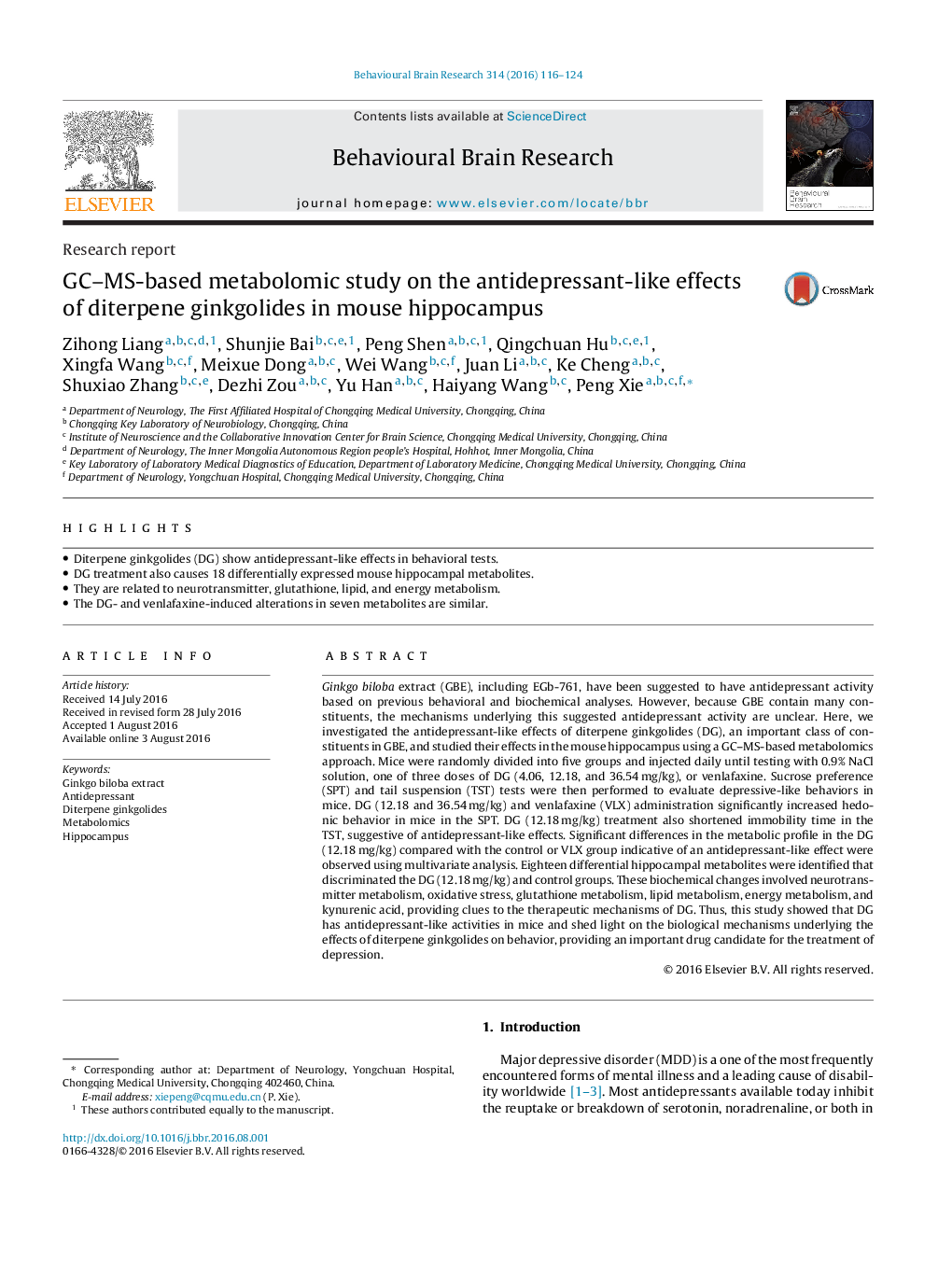| Article ID | Journal | Published Year | Pages | File Type |
|---|---|---|---|---|
| 4312108 | Behavioural Brain Research | 2016 | 9 Pages |
•Diterpene ginkgolides (DG) show antidepressant-like effects in behavioral tests.•DG treatment also causes 18 differentially expressed mouse hippocampal metabolites.•They are related to neurotransmitter, glutathione, lipid, and energy metabolism.•The DG- and venlafaxine-induced alterations in seven metabolites are similar.
Ginkgo biloba extract (GBE), including EGb-761, have been suggested to have antidepressant activity based on previous behavioral and biochemical analyses. However, because GBE contain many constituents, the mechanisms underlying this suggested antidepressant activity are unclear. Here, we investigated the antidepressant-like effects of diterpene ginkgolides (DG), an important class of constituents in GBE, and studied their effects in the mouse hippocampus using a GC–MS-based metabolomics approach. Mice were randomly divided into five groups and injected daily until testing with 0.9% NaCl solution, one of three doses of DG (4.06, 12.18, and 36.54 mg/kg), or venlafaxine. Sucrose preference (SPT) and tail suspension (TST) tests were then performed to evaluate depressive-like behaviors in mice. DG (12.18 and 36.54 mg/kg) and venlafaxine (VLX) administration significantly increased hedonic behavior in mice in the SPT. DG (12.18 mg/kg) treatment also shortened immobility time in the TST, suggestive of antidepressant-like effects. Significant differences in the metabolic profile in the DG (12.18 mg/kg) compared with the control or VLX group indicative of an antidepressant-like effect were observed using multivariate analysis. Eighteen differential hippocampal metabolites were identified that discriminated the DG (12.18 mg/kg) and control groups. These biochemical changes involved neurotransmitter metabolism, oxidative stress, glutathione metabolism, lipid metabolism, energy metabolism, and kynurenic acid, providing clues to the therapeutic mechanisms of DG. Thus, this study showed that DG has antidepressant-like activities in mice and shed light on the biological mechanisms underlying the effects of diterpene ginkgolides on behavior, providing an important drug candidate for the treatment of depression.
